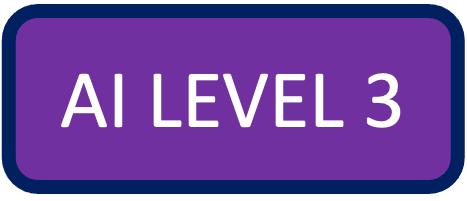Moving GPT Offerings from Social Platforms to Enterprise Systems: Unlocking New Opportunities

The advent of GPT (Generative Pre-trained Transformer) models has revolutionized the field of natural language processing and AI-driven applications. Initially, these powerful models were primarily deployed on social platforms to enhance user experiences and engagement. However, there is now a growing trend of moving GPT offerings from social platforms to enterprise systems. This shift holds immense potential for businesses, enabling them to leverage the capabilities of GPT models to drive innovation, streamline operations, and improve customer interactions. In this blog, we will explore the plan of moving GPT offerings to enterprise systems and discuss the future of integrating these models with enterprise platforms.
- The Motivation for Moving GPT Offerings to Enterprise Systems: Social platforms have been the breeding ground for GPT models, offering features such as language generation, content recommendation, chatbots, and more. While these capabilities have proven valuable in the consumer space, businesses have recognized the need to harness the power of GPT models within their own ecosystems. There are several motivations behind this shift:
a. Tailored Applications: By integrating GPT models into enterprise systems, organizations can create custom applications that cater specifically to their business needs. These models can be trained on industry-specific data, enabling them to generate contextually relevant content and insights.
b. Enhanced Efficiency: GPT models can automate repetitive tasks, improve productivity, and accelerate decision-making processes within enterprises. Whether it's generating reports, analyzing customer feedback, or providing real-time support, GPT models can assist employees in various domains, freeing up valuable time and resources.
c. Improved Customer Interactions: Integrating GPT models with enterprise platforms empowers businesses to offer personalized and interactive customer experiences. From intelligent virtual assistants to chatbots that understand natural language, GPT models can enhance customer support, address queries promptly, and deliver tailored recommendations.
- Challenges and Considerations: While the transition of GPT offerings to enterprise systems presents exciting opportunities, it also comes with unique challenges that need to be addressed:
a. Data Privacy and Security: Enterprises deal with sensitive data, making it crucial to ensure the privacy and security of information when integrating GPT models. Robust safeguards and compliance measures must be implemented to protect proprietary and customer data.
b. Customization and Training: GPT models need to be trained on domain-specific data to deliver optimal results. Enterprises must invest in data curation, fine-tuning, and ongoing model updates to align the models with their business requirements.
c. Scalability and Performance: Enterprise systems often handle large volumes of data and require high-performance solutions. GPT models must be scalable and efficient to process complex queries, generate responses in real-time, and handle multiple concurrent requests.
- The Future of Integration with Enterprise Platforms: Looking ahead, the integration of GPT models with enterprise platforms holds tremendous promise. Here are a few areas where we can expect significant advancements:
a. Industry-Specific Solutions: GPT models will be further tailored to cater to specific industries, enabling organizations to benefit from domain expertise. Custom models trained on vast amounts of industry-specific data will drive innovation and optimize processes across sectors such as healthcare, finance, retail, and more.
b. Multi-Modal Capabilities: Future GPT models will incorporate not only textual but also visual and auditory inputs, allowing for richer interactions. This will open doors for advanced applications like image captioning, video analysis, and voice-controlled systems within enterprise environments.
c. Collaboration and Knowledge Management: GPT models will enhance collaboration platforms by providing intelligent document summarization, knowledge extraction, and contextual recommendations. This will enable teams to extract valuable insights from vast amounts of data, improve decision-making, and foster a culture of knowledge sharing.
The migration of GPT offerings from social platforms to enterprise systems signifies a paradigm shift in the adoption of AI technologies in business settings. By leveraging the power of GPT models, enterprises can unlock new opportunities for innovation, efficiency, and customer engagement. While challenges remain, continued advancements in privacy, customization, scalability, and performance will pave the way for seamless integration. As we move forward, the integration of GPT models with enterprise platforms will undoubtedly reshape how businesses operate, opening doors to enhanced productivity, better customer experiences, and a more intelligent future.
Zweli Dlamini - Voodoo Park SA

